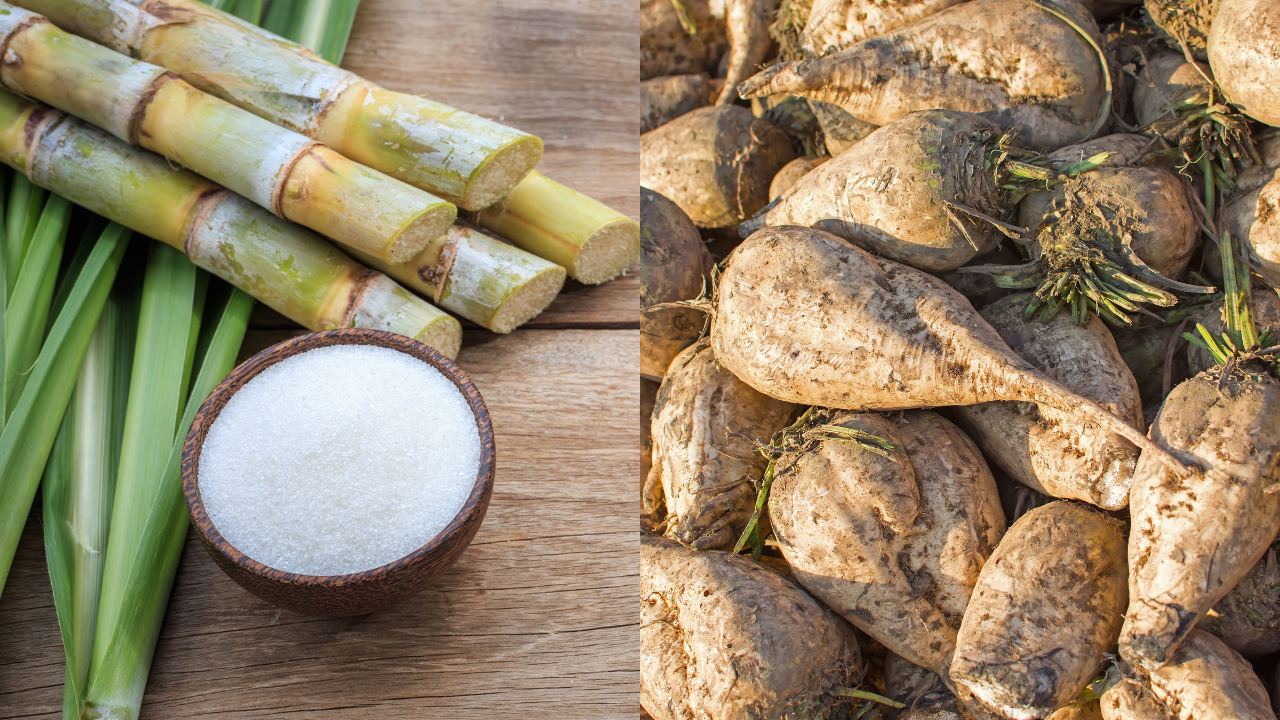Understanding beet sugar vs cane sugar helps shoppers make informed choices about their diet.
Understanding beet sugar vs cane sugar helps shoppers make informed choices about their diet.
Blog Article
Discover the Uses and Advantages of Beet Sugar Vs Cane Sugar in Your Daily Diet Plan
Checking out the unique qualities of beet and cane sugar exposes even more than just their sweetening abilities; it highlights their special influence on health and wellness and culinary arts. Beet sugar, recognized for its refined flavor, is commonly preferred in fragile desserts, whereas cane sugar, with its tip of molasses, includes richness to robust dishes. Each kind holds its very own nutritional profile and glycemic effects, welcoming a deeper understanding of their duties in a well balanced diet and sustainable intake practices.
Beginning and Manufacturing Processes of Beet and Cane Sugar

The distinct climates and soil kinds required for growing sugar beetroots and sugarcane contribute to distinctions in their farming techniques and geographic circulation, influencing the business economics and sustainability of their production. beet sugar vs cane sugar.
Nutritional Contrast Between Beet Sugar and Cane Sugar
In spite of stemming from different plants, beet sugar and cane sugar are nutritionally really comparable, both largely containing sucrose. Each provides about 4 calories per gram, translating to about 16 calories per teaspoon. Structurally, both sugars are made up of roughly 99.95% sucrose, with minimal quantities of other substances like moisture and trace element, which do not substantially modify their dietary profiles.

Inevitably, when choosing in between beet sugar and cane sugar based upon nutritional material alone, both offer the same benefits and downsides as they are basically kinds of the very same particle-- sucrose, giving quick power without various other nutrients.
Influence on Wellness: Glycemic Index and Caloric Material
Exploring better right into the effects of beet sugar and cane sugar on health, it is vital to consider their glycemic index and calorie content. The glycemic index (GI) of both beet and cane sugar is around 65, categorizing them as high-GI foods, which can trigger fast spikes in blood glucose degrees.
Each kind of sugar contains about 4 calories per gram, making their calorie web content equivalent. For those keeping track of calorie intake, particularly when handling weight or metabolic wellness problems, find more information understanding this equivalence is essential (beet sugar vs cane sugar). informative post However, extreme consumption of any high-calorie, high-GI food can add to health problems such as excessive weight, cardiovascular disease, and insulin resistance.
Environmental and Economic Considerations of Sugar Production
Beyond wellness impacts, the production of beet and cane sugar likewise raises significant ecological and financial worries. Sugar beet farming has a tendency to need cooler environments and has a reduced geographical impact compared to sugar cane, which flourishes in exotic regions.
In addition, using chemicals and fertilizers in both beet and cane sugar farming can bring about soil destruction and pollution, more influencing biodiversity and neighborhood water bodies (beet sugar vs cane sugar). The choice between growing sugar beet or cane frequently rests on neighborhood ecological conditions and financial aspects, making the sustainability of sugar manufacturing a complicated concern
Culinary Applications and Taste Distinctions
While the ecological and financial elements of sugar manufacturing are certainly significant, the choice between beet and cane sugar additionally affects cooking applications and taste profiles. Beet sugar, acquired from the sugar beet plant, is recognized for its remarkably neutral taste.
Cane sugar, extracted from sugarcane, commonly retains molasses traces, which give a distinct splendor and deepness. This small molasses taste improves the complexity of baked goods, sauces, and marinates. It is especially favored in items where a caramel undertone is desired, such as in brownies or gingerbread. In addition, the small variant in moisture content between beet and cane sugar can affect the appearance and uniformity of dishes, making cane sugar a recommended choice for specific dishes that take advantage of its one-of-a-kind residential or commercial properties.

Final Thought
In conclusion, both beet and cane sugar have unique origins and manufacturing processes, supplying similar nutritional profiles with Full Article small distinctions in sodium content and flavor. While their effect on health and wellness, specifically regarding glycemic index and calories, is comparable, the selection in between them frequently boils down to ecological, financial elements, and certain cooking demands. Recognizing these facets can guide customers in making educated choices that align with their wellness goals and taste choices.
Report this page